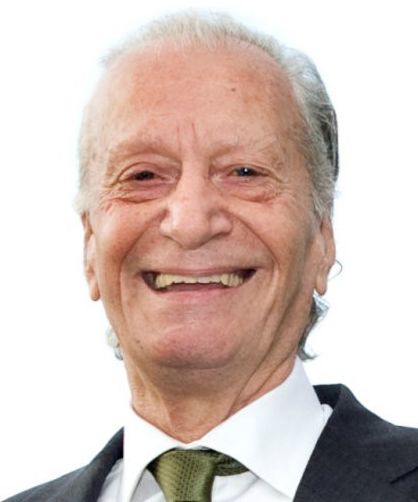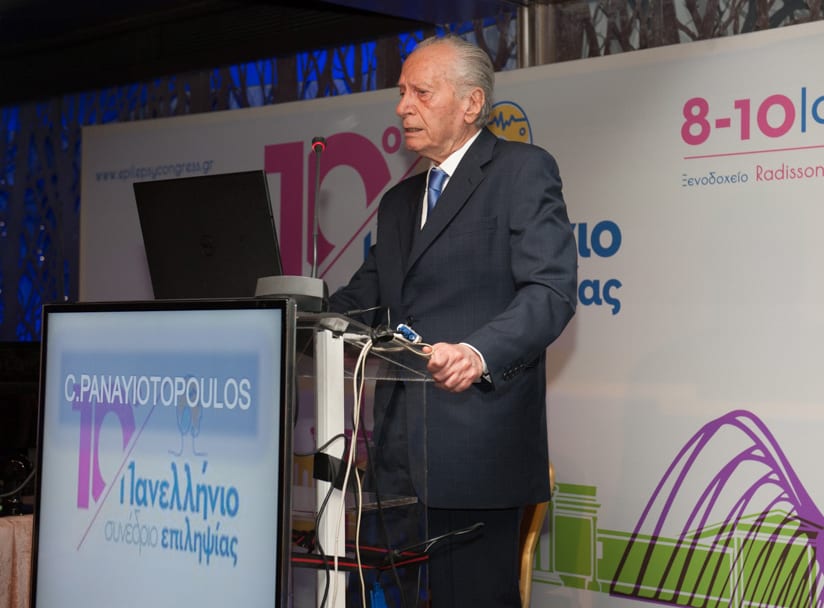
Chrysostomos P Panayiotopoulos
1938 - 2020
Professor Chrysostomos P. Panayiotopoulos (“Tomis”), one of the fathers of modern epileptology who discovered the Panayiotopoulos Syndrome, died peacefully at St Thomas Hospital in London, the hospital where he worked as a physician for nearly 20 years and chaired the Department of Clinical Neurophysiology.
Tomis was the youngest of 3 boys, born to Pavlos and Sophia on January 31, 1938 during the privations of depression era Greece. He was then raised amid the fear and danger of the Nazi occupation of his homeland and the bitter civil war that followed. Tomis overcame these challenging beginnings to become a Neurologist and one of the fathers of modern epileptology, saving hundreds of thousands of children a lifetime of medication through the discovery of the Panayiotopoulos Syndrome, and dedicating his professional life to distinguishing many variants of a condition which had previously been largely generalized both in diagnosis and treatment.
Tomis once summarized his view of past epilepsy clinical diagnoses and management by saying, “In the early stages of my medical career… traditional medical teaching and attitudes to the diagnosis and management of epilepsies often differed from those applied in other medical conditions. The fundamental rules of diagnosis that apply in all other physical diseases were often ignored in epilepsies, resulting in avoidable morbidity and sometimes mortality.”1 Determined to put this right, he authored or co-authored over 140 scholarly articles on the subjects of epilepsy and neurophysiology and has also authored several seminal books, such as The Atlas of Epilepsies and A Clinical Guide to Epileptic Syndromes and Their Treatment.

In a life defined by unceasing dedication, Tomis’ children and wife tell fond stories of late nights, the ubiquitous cigarette smoldering forgotten in an ashtray, surrounded by a snow drift of raw EEG readouts, ceaselessly probing data for the secrets that would distinguish Tomis as not only a formidable clinician, but also a prodigious scholar. As a result of his studies in epileptology and in other areas of Neurology he was able to define a number of innovative scientific techniques such as the F-wave chronodispersion, a highly sensitive measurement of motor nerve conduction used to test nerve integrity in peripheral neuropathies.
It was his discovery of the previously undefined disease state, the Panayiotopoulos Syndrome, of which Tomis was most recognized, however. This condition, a childhood form of epilepsy, appears dangerous and is distressing to witness in patients, but was understood by Professor Panayiotopoulos to be a benign form of epilepsy that would largely resolve itself.
Despite strong initial resistance to the disruptive recognition of this syndrome, he remained steadfastly faithful to the evidence and advocated strongly on the behalf of patients in order to avoid the unnecessary drastic chemical and surgical interventions which characterized treatments of the time. His analysis was later wholly vindicated by the completion of several long-term clinical studies.
As is so often the case, Tomis' humble beginnings conferred the intense appreciation for the necessities of life and a respect for the most unfortunate among us. These beliefs formed the foundation of his life philosophy: his family remembers, for example, that his arrival on the island of Spetses for his annual holiday would be swiftly followed by a queue of islanders, having heard of his arrival, seeking his care with nothing more to offer than a bottle of home pressed oil in compensation. Tomis made sure he saw them all.
Chrysostomos Panayiotopoulos is survived by his wife, Thalia, his two children, Paris and Sophia, and his five grandchildren, Carlos, Stella, Alexia, Joy, and Calypso.
Submitted by Thanos Kovanis
Subscribe to the ILAE Newsletter
To subscribe, please click on the button below.
Please send me information about ILAE activities and other
information of interest to the epilepsy community